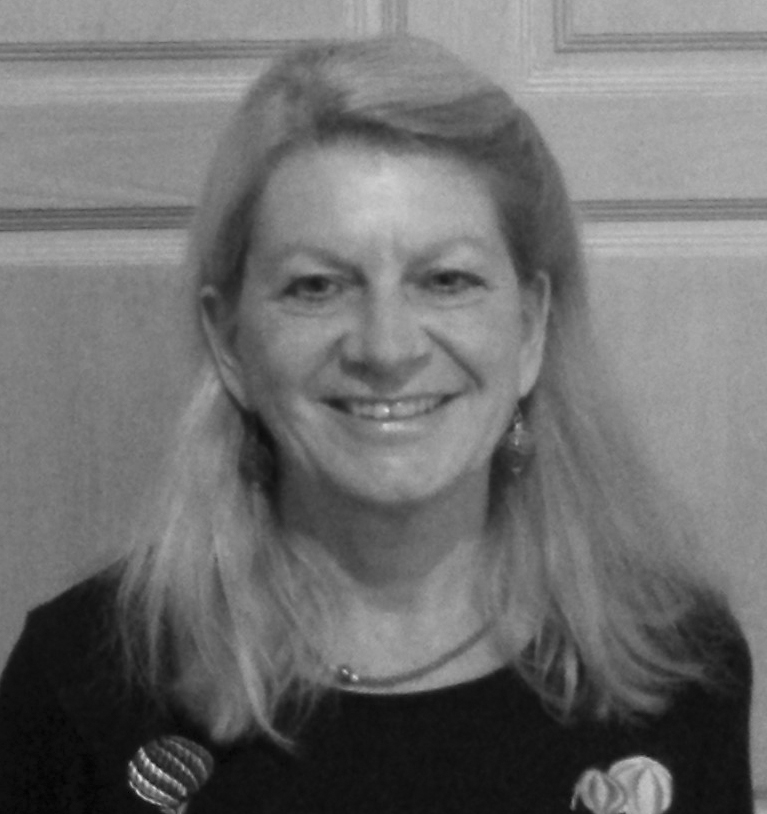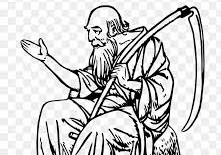2 May 2024
Are You Old Yet?
When does that happen?
By Lynda Goetz

It is almost harder, I think, to write an article once a month than to do so once a week. For a start you get out of the rhythm and then there is the problem, at the moment at least, of there being so much happening, both here and around the world, that it is almost impossible to choose a subject. Should one be addressing the trans debate, the SNP, the situation in Gaza, the war in Ukraine, the chaos and dysfunction of the Tory party, immigration (legal and illegal), the issues with China, the increase in knife crime etc etc? In any event, writing only once a month, there is the fear that anything you have to say has been said days or weeks ago, probably many times over, in different ways, from different perspectives and that adding further to the debate (if such a thing is possible at all these days) is simply going to irritate or bore. I have decided therefore to address none of these possibly divisive or toxic issues this month and to muse instead on the question of aging.
Aging is something I suspect the readers of the Shaw Sheet are uncomfortably familiar with, as I think we established some long time ago that our audience was definitely not a youthful one. An article of 1000-1500 words is probably too lengthy for most of those below Gen X (aged currently between 44-59) and as most of those are likely to be too busy to have the time to read amateur journalists commentaries our main readership is almost certainly amongst the so-called Baby Boomers (60-78) with perhaps a few of the Silent Generation (79 -96 according to Mental Floss). Many of these will be aware that a recent study from the Humboldt University in Berlin co-authored by Dr Markus Wettstein and reported in the journal Psychology and Aging, concluded that perceptions of what is considered old have not only changed across the centuries and decades, but they continue to change.
The German survey, following over 14,000 people born between 1911 and 1974, asked the question, “At what age would you consider someone old?” It transpired that not only had old age been ‘pushed back’ to 76 (rather than 74) by those most recently asked the question at 65, but that as people get older, they revise old age upwards. (I do clearly remember my father at 97 commenting that he did not like ‘this business of getting older’. My mother laughingly pointed out that he was old! Something he only really accepted a year or so later, just before he died at the age of 100). The researchers said that neither poor health or education levels fully explained their findings and that there were limitations to their study, including the fact that it could not be generalised to other countries, given that cultural perceptions differ.
It is nevertheless fair to say that in Western countries generally, old age is viewed negatively rather than positively. This could account in some measure for the fact that older members of the population do not wish necessarily to consider themselves as old. ‘Old’ has connotations of ‘useless’ or ‘incapable’, whereas in some other societies age is recognised as bringing wisdom and experience and has, at least until more recently, been venerated. Another possible explanation is that with advances in medicine, surgery and healthcare generally, as well as a better understanding of the benefits of exercise and healthy eating, more and more older people are able to enjoy their retirement years, engaging in a variety of activities and travel which during their working and family- focused years they perhaps had neither the time nor the money to indulge in.
If you enter ‘signs you’re getting older’ into your search engine, numerous articles from local rags to national papers, from medical journals to popular health blogs will appear; either earnestly listing possible ailments and perhaps advising on how to avoid them, or jokily pointing out things like an inability to deal with technology, an antipathy to loud music, falling asleep after a glass of wine, ‘getting into’ gardening or appreciating nature.. Since average life expectancy in the UK has reached 82 and there are nearly 14,000 centenarians in the country (up from fewer than 1,000 in 1960 and fewer than 5,000 in 1980), it is quite clear that we are living longer than ever before. The problem for many is how we are living those last years. If we are relatively fit and healthy, able to enjoy hobbies, sports and pastimes and still get around and travel, then our final years can be extremely enjoyable. In theory, freed from the responsibilities of jobs and children this can be a time of fulfilment, even if it is overshadowed by the knowledge that we are ‘in God’s waiting room’.
In Atul Gawande’s book ‘Being Mortal’, a brilliant book, which I have mentioned before in The Shaw Sheet, the author, a doctor, lays bare the emphasis placed by the modern American medical profession on keeping people alive at the expense of quality of life. His observations on American end of life care can equally be applied in almost all first world countries, although the emphasis does seem to be changing in the decade since the book was published in 2014. Palliative care has improved, and some countries have brought in assisted dying laws. In this country the charity, Dignity in Dying is actively campaigning, with increasing public support, for such a law here. Although the debate at Westminster on Monday on the subject did not include a binding vote, the fact that those with the money can choose to go to Dignitas in Switzerland, but those without such means are barred from that choice, strikes many as wrong. The fears and concerns around the subject are, of course, justified, but with appropriate safeguards, it should surely be possible for our advances in medicine to be put to use not simply to prolong frailty, illness and a miserable existence? As one critic commented about Atul Gawande’s book, “A deeply affecting, urgently important book – one not just about dying and the limits of medicine but about living to the last with autonomy, dignity, and joy.”
We are, at the end of the day, responsible for our own choices. We cannot account for what life throws at us, but how we deal with it is down to us. Of course a diagnosis of cancer, for example, is ‘shocking’ as the king says. Like much in life we pray, even believe, it won’t happen to us. Unfortunately absolutely no-one is immune. When illness hits us, we need the doctors and the hospitals, but in the meantime, we can all do our best to keep away from them. Addressing our own health, both mental and physical, may not be that easy in a world of endless comparisons, social media, ultra processed food, fragmented families and broken communities, but the achievements in doing so are priceless. ‘Getting into’ gardening or appreciating nature do not need to be the preserve of the elderly. They can be helpful to mental health at any age. Likewise, taking exercise and eschewing junk food promote good physical health in the young as well as the old. This does not mean ignoring real symptoms of ill health which require clinical intervention but working through the ‘aches and pains’ of ageing is healthy and positive and a way of prolonging our autonomous active lives. We all need to focus on living with ‘autonomy, dignity and joy’ whatever age we are.
Caroline Abrahams, director of Age UK, suggested that “chronological age is rarely a good proxy for anything and the sooner we realise that in our society, the better.” She added, “The idea that we are ‘as old as we feel’ is a helpful one.” On that note, I think I’ll go and do the stretching exercises for my sciatica before I go to bed.


